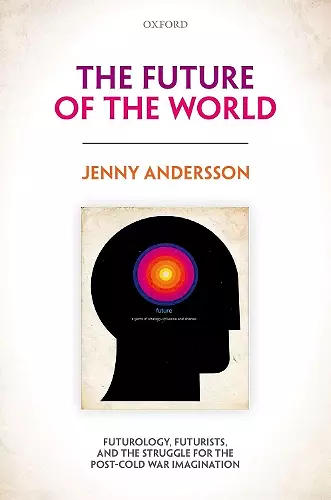The Future of the World
Futurology, Futurists, and the Struggle for the Post Cold War Imagination
Format:Hardback
Publisher:Oxford University Press
Published:16th Aug '18
Currently unavailable, and unfortunately no date known when it will be back

The Future of the World is devoted to the intriguing field of study which emerged after World War Two, futurism or futurology. Jenny Andersson explains how futurist scholars and researchers imagined the Cold War and post Cold War world and the tools and methods they would use to influence and change that world. Futurists were a motley crew of Cold War warriors, nuclear scientists, journalists, and peace activists. Some argued it should be a closed sphere of science defined by delimited probabilities. They were challenged by alternative notions of the future as a potentially open realm. Futurism also drew on an eclectic range of repertoires, some of which were deduced from positivist social science, mathematics, and nuclear physics, and some of which sprung from alternative forms of knowledge in science fiction, journalism, or religion. These different forms of prediction laid very different claims to how accurately futures could be known, and what kind of control could be exerted over what was yet to come. The Future of the World carefully examines these different engagements with the future, and inscribes them in the intellectual history of the post war period. Using unexplored archival collections, The Future of the World reconstructs the Cold War networks of futurologists and futurists.
The Future of the World is an important book that properly situates the history of future research during the Cold War within its international contextand brings our attention to the methods that futurists used to justify the future worlds theyimagined. Andersson's book also highlights the need for historians to look at the broader institutional landscape of Cold War research firms, of which RAND was just one of many such examples. Such work will not only help us better understand RAND's historical significance, but also the ways in which professional expertise, consultancy, and method all intersected to shape the Cold War world and the one that came out of it. * James D. Skee, University of California, Berkeley, H-Diplo *
ISBN: 9780198814337
Dimensions: 240mm x 163mm x 23mm
Weight: 586g
284 pages